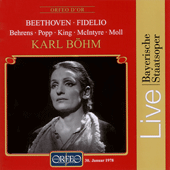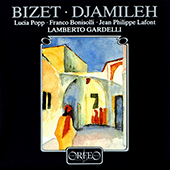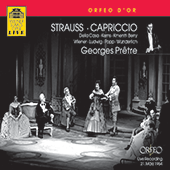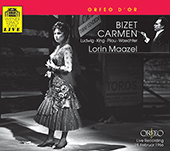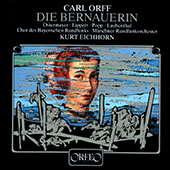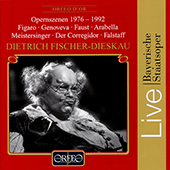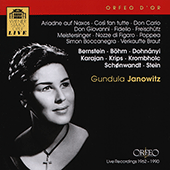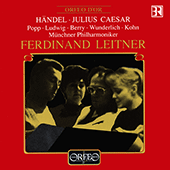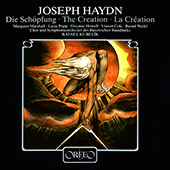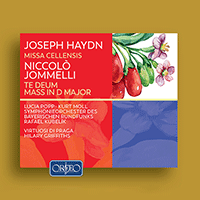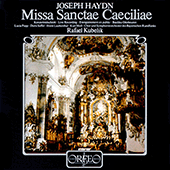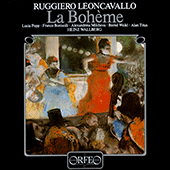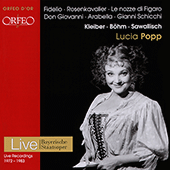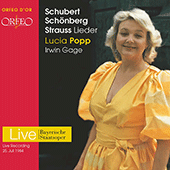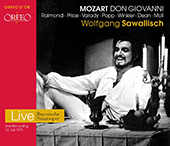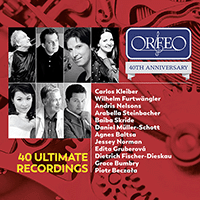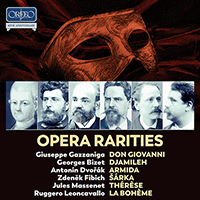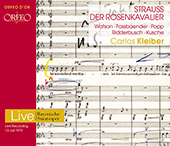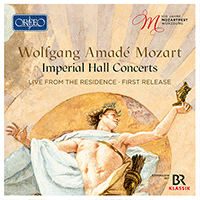Lucia Popp
Popp (real name Lucia Poppová) initially studied medicine before turning to acting. Anna Hrusovska- Prosenkova, a voice teacher at the Bratislava Music Academy, happened to hear her singing during a performance of Molière’s Le Bourgeois Gentilhomme, and offered her voice lessons. Popp studied at the Academy for four years, beginning as a mezzo-soprano (although her voice quite suddenly developed a high upper register) and completing courses in general music and vocal studies. She made her debut as the Queen of the Night / Die Zauberflöte at the Bratislava Opera in 1963.
Shortly afterwards Popp sang Barbarina / Le nozze di Figaro at the Theater an der Wien in Vienna and was immediately invited by Herbert von Karajan to appear at the Vienna State Opera singing the same role. Other early roles in Vienna included Karolka / Jenůfa, Marzelline / Fidelio, Adele / Die Fledermaus and the Queen of the Night with which Popp made a big impact, being engaged by Walter Legge to sing this role in the complete recording of Die Zauberflöte conducted by Otto Klemperer, made in 1964. She also made her debut at the Salzburg Festival in 1963 singing the First Boy / Die Zauberflöte and Artemis / Iphigenie in Aulis, followed by Naiad / Ariadne auf Naxos and one of the maids / Elektra in 1964.
Popp left the permanent roster of the Vienna State Opera in 1967 and moved to the Cologne Opera where she was able to study a wider repertoire: over the next ten years she systematically prepared other lyric soprano roles in operas by Mozart (Zerlina / Don Giovanni, Susanna / Le nozze di Figaro, Despina / Così fan tutte, Pamina / Die Zauberflöte, Ilia / Idomeneo and Servilia / La clemenza di Tito) and Richard Strauss (Sophie and the Marschallin / Der Rosenkavalier, the title role in Arabella, Christine / Intermezzo and the Countess / Capriccio).
At the Royal Opera House, London Popp first appeared in 1966 as Oscar / Un ballo in maschera, returning to sing Despina (1968), Sophie with Krips conducting (1971), Gilda / Rigoletto (1972), Ännchen / Der Freischütz (1977), Eva / Die Meistersinger von Nürnberg (1982), Pamina (1983), Arabella (1986) and the Marschallin (1989). In 1967 she made her debut at the Metropolitan Opera, New York as the Queen of the Night (a role she ceased to sing in 1971); later roles at the Met included Sophie with Böhm conducting (1970) and Pamina (1980). Popp’s debut at La Scala, Milan came in 1976 as Sophie, with Carlos Kleiber conducting.
In 1978 Popp left Cologne and henceforth was heard most frequently in Vienna and Munich. In Munich in addition to her established repertoire she sang lighter roles, such as Lauretta / Gianni Schicchi, Musetta / La Bohème, Frau Fluth / Die lustigen Weiber von Windsor and Margiana / Der Barbier von Bagdad, as well as the title role in the premiere of Sinopoli’s opera Lou Salomé (1981); while in Vienna she proved to be a vivacious Rosalinde / Die Fledermaus and a vivid Mařenka / The Bartered Bride.
Popp returned to the Salzburg Festival to sing Sophie (1978–1979), Pamina (1980–1981), Ilia (1983), the Countess / Le nozze di Figaro (1986 and 1992) and the Countess (Capriccio, 1987), as well as taking part in numerous concerts and recitals. Her first appearance at the Bayreuth Festival was in 1986, as Eva.
In a concert performance at Geneva in 1991 Popp sang the title role in Daphne, while her last operatic performance was in Zürich in 1993 as Vitellia / La clemenza di Tito; her last song recital was given in Vienna only two months before her early death from brain cancer.
As a result of the systematic development of her voice, Popp was one of the select group of sopranos who sang various roles in the same opera at different stages in her career: for instance in Arabella, Der Rosenkavalier, Die Fledermaus, Le nozze di Figaro, Die Zauberflöte and Der Freischütz. In this she was aided by her lively and dramatic stage personality. The possessor of a beautiful, silvery voice that was ideal for Mozart and Richard Strauss, Popp recorded extensively.
© Naxos Rights International Ltd. — David Patmore (A–Z of Singers, Naxos 8.558097-100).








